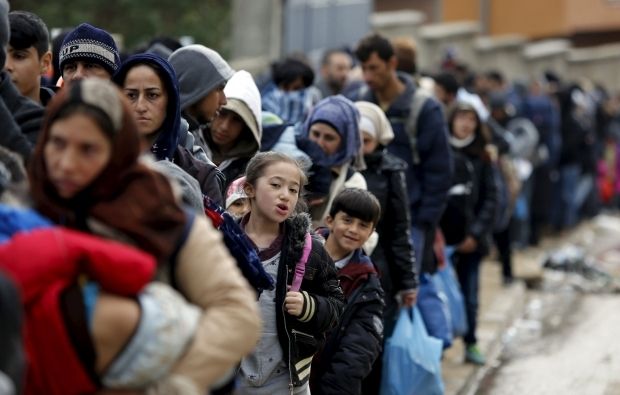
Tusk suggested in an article for the German newspaper "Welt Am Sonntag" that Berlin may need to play a leadership role in ensuring the EU's external borders are properly protected, Deutsche Welle wrote on Sunday.
His message to Chancellor Angela Merkel was that the EU's security needs may be different from Germany's.
"I understand if Germany, for historical reasons has difficulty, implementing a strict regime on its (own) borders," he was quoted as saying.
But the EU Council President said "Germany's leadership responsibility within the EU also requires it to protect the external European borders decisively if necessary, in accordance with pan-European unity."
Tusk was full of praise for the readiness of the German government to accept hundreds of thousands of migrants, describing Berlin's action as "the most liberal and tolerant in European history."
Tusk was due to hold talks on Sunday evening with German Chancellor Angela Merkel as he faced pressure from East European countries for Brussels to better police the 28-nation bloc's external borders - and not just focus on the reception of new refugees.
Germany has seen 758,000 asylum-seekers arrive between January and October this year, which has caused a political backlash for Merkel.
EU leaders are due to attend a fifth migrant crisis summit following the EU-Africa conference in Malta on Wednesday. The discussion is also expected to focus on migration.
On the agenda, will be the implementation of a scheme to distribute 160,000 refugees within the EU, increased cooperation with Turkey and the setting up of transit zones to process asylum applications faster at the bloc's external borders.
Tusk is also due to call for a greater global response to the crisis at the G20 summit in Turkey in mid-November.
As many thousands of migrants enter Europe by crossing the Aegean and Mediterranean seas, the EU's external borders are seen as being too porous.
Meanwhile on Saturday, Britain's Channel 4 news reported on the growing number of migrants attempting to reach the Greek island of Lesbos before winter sets in.
Around 135,000 refugees arrived in Lesbos in October, it said, quoting figures from the United Nation's refugee agency UNHCR. Over the past month, the data reveals that the number of Afghan migrants has more than doubled to 40% of the total number of arrivals.

